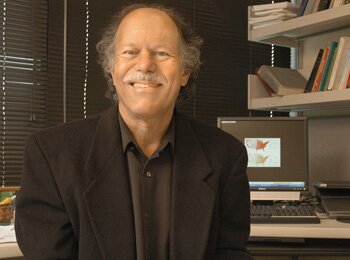The SunBreak’s Audrey has already made the link between Steven Soderbergh’s Contagion and the flu, and because news about the end of humanity is more relevant if it’s piggybacked on a recent film, we’re going to let the researchers at the Fred Hutchinson Cancer Center make the Contagion analogy yet again:
In the new movie Contagion, fictional health experts scramble to get ahead of a flu-like pandemic as a drug-resistant virus quickly spreads, killing millions of people within days after they contract the illness.
Although the film isn’t based entirely on reality, it’s not exactly science fiction, either.
(Okay, third time: This Thursday, 6:30 to 8:30 p.m., film-talking-guy Warren Etheredge discusses Contagion with Seattle infectious disease experts Ann Marie Kimball, MD, MPH, author of Risky Trade: Infectious Disease in the Era of Global Trade and a professor of epidemiology at the University of Washington; and David Sherman, PhD, a tuberculosis researcher at Seattle Biomed and adjunct associate professor at the UW School of Global Health. The panel will be held at the Seattle Biomedical Research Institute, 307 Westlake Avenue North, Suite 500.)

Researchers Dennis Chao, Jesse D. Bloom, Beth F. Kochin, Rustom Antia, and Ira M. Longini, Jr., have published a paper on drug-resistant flu in the Royal Society journal Interface that illuminates–horrifically, if you’re inclined to see things this way–how quickly the flu has become resistant to Tamiflu, even though it shouldn’t have, given the “low overall level of the oseltamivir [i.e., Tamiflu] usage.”
We were not around for the 1918 flu epidemic, but we’re still very impressed by it, and regular readers of The SunBreak know that we like to keep close tabs on the efficacy of flu vaccines and antiviral treatments.
Luckily, we have the Fred Hutchinson Cancer Research Center nearby, where Chao, Bloom, and Longini put in time (when the last is not busy with being professor of biostatistics in the University of Florida College of Public Health and Health Professions and the UF College of Medicine and the UF Emerging Pathogens Institute).
The team studied the rise in resistance to Tamiflu between 2006 and 2009 (2009 was a banner year for flu locally), discovering that their computer models for the rise of resistance would not conform with observations unless the virus was doing something surprising:
The extreme speed with which the resistance spread in seasonal H1N1 suggests that the resistant strain had a transmission advantage in untreated hosts, and this could have arisen from genetic hitchhiking, or from the mutations responsible for resistance and compensation.
In slightly plainer English, it may come down to a single person with a doubly-mutant flu bug–one that is both Tamiflu-resistant and more contagious than usual.

The models predict that it’s not a question of the larger Tamiflu-using population selecting for resistance, but of a Tamiflu-resistant mutant virus getting better, faster, stronger on its own. “If you see resistant strains in parts of the world where no one is taking antiviral drugs, that’s the smoking gun that the resistant strain must be transmitting,” Longini explains.
The hypothesis is that Tamiflu resistance somehow “hitchhiked” via other mutations for contagiousness. This mutant synergy is disturbing, given a) how big a problem drug resistance is already and b) that Tamiflu is stockpiled worldwide. As of the end of 2010, WHO had found about one-third of the flu strains it tested were resistant to Tamiflu (though to be fair, there are already concerns about how well Tamiflu works, under the best conditions).
All of which makes this a good year to get a flu shot. It can be wildly variable in effectiveness, depending on how well the mix of strains vaccinated against match up with what appears “in the wild,” but if you’ve ever bought a lottery ticket, you have no excuse for not taking these odds.